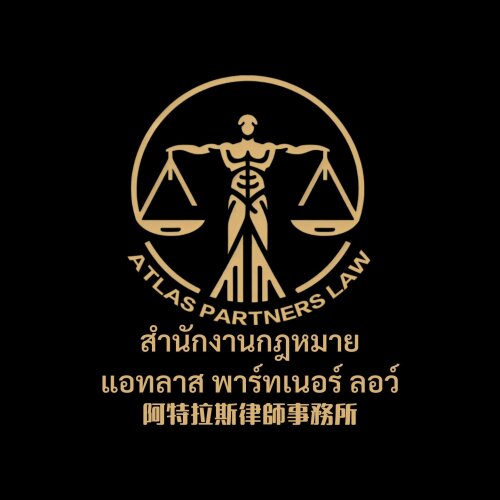ทนายความ กฎหมายอวกาศ ที่ดีที่สุดใน เชียงใหม่
แบ่งปันความต้องการของคุณกับเรา รับการติดต่อจากสำนักงานกฎหมาย
ฟรี ใช้เวลา 2 นาที
รายชื่อทนายความที่ดีที่สุดใน เชียงใหม่, ประเทศไทย
1. เกี่ยวกับกฎหมายอวกาศในเชียงใหม่, ประเทศไทย
กฎหมายอวกาศในประเทศไทยยังเน้นไปที่กรอบนโยบายและกฎหมายทั่วไปที่ควบคุมกิจกรรมเกี่ยวกับดาวเทียมและข้อมูลทางอวกาศในประเทศ.
เชียงใหม่เองไม่มีกฎหมายอวกาศเฉพาะตัวที่บังคับใช้ระดับจังหวัด แต่กิจกรรมพื้นที่สูง เช่น การใช้งานข้อมูลภาพดาวเทียมและการประมวลผลข้อมูลเป็นสิ่งที่อยู่ภายใต้กฎหมายไทยส่วนใหญ่ เช่น กฎหมายข้อมูลส่วนบุคคลและกฎหมายเกี่ยวกับการสื่อสาร.
2. ทำไมคุณอาจต้องการทนายความ
สถานการณ์ที่เกี่ยวข้องกับเชียงใหม่และกฎหมายอวกาศมักซับซ้อน และต้องคำปรึกษาจากทนายความด้านกฎหมายอวกาศเพื่อความถูกต้องตามข้อบังคับ.
สถานการณ์ที่ 1: บริษัทเชียงใหม่ต้องใช้ภาพดาวเทียมเชิงพาณิชย์เพื่อวางแผนพัฒนาที่ดินในอำเภอหางดง โดยต้องพิจารณาสิทธิ์การใช้งานลิขสิทธิ์ภาพถ่ายและข้อจำกัดการเผยแพร่ข้อมูล.
สถานการณ์ที่ 2: มหาวิทยาลัยในเชียงใหม่ร่วมกับผู้ให้บริการภาพถ่ายดาวเทียมเพื่อวิจัยด้านภูมิสารสนเทศ ต้องสัญญาเรื่องความเป็นส่วนตัว การใช้ข้อมูล และการแบ่งปันข้อมูลกับหน่วยงานภาครัฐ.
สถานการณ์ที่ 3: บริษัทสตาร์ทอัปในเชียงใหม่กำลังพิจารณาใช้ข้อมูลภาพดาวเทียมเพื่อการเกษตร และต้องสัญญาสิทธิ์การใช้งานกับผู้ขายข้อมูล เพื่อลดความเสี่ยงทางกฎหมาย.
สถานการณ์ที่ 4: ผู้ให้บริการรักษาความปลอดภัยข้อมูลในเชียงใหม่ถูกขอให้เปิดเผยข้อมูลภาพดาวเทียมจากหน่วยงานรัฐ ต้องเตรียมหลักฐานความเป็นไปตาม PDPA และข้อกำหนดการเปิดเผยข้อมูล.
สถานการณ์ที่ 5: บริษัทรับเหมาก่อสร้างในเชียงใหม่ต้องแยกแยะระหว่างข้อมูลภาพดาวเทียมที่เป็นข้อมูลส่วนบุคคลกับข้อมูลสาธารณะ เพื่อปฏิบัติตามกฎหมายคุ้มครองข้อมูลส่วนบุคคล.
สถานการณ์ที่ 6: ผู้ดำเนินธุรกิจด้านการสื่อสารและดาวเทียมต้องทราบข้อกำหนดด้านสื่อสาร โทรคมนาคม และความมั่นคงทางไซเบอร์เมื่อใช้งานระบบอวกาศในบริบทประเทศไทย.
3. ภาพรวมกฎหมายท้องถิ่น
ปัจจุบันประเทศไทยยังไม่มีพระราชบัญญัติอวกาศฉบับเดียวที่เป็นกฎหมายพื้นฐานระดับชาติสำหรับกิจกรรมอวกาศจริงจังในเชียงใหม่หรือทั่วประเทศ.
อย่างไรก็ตาม กิจกรรมที่เกี่ยวข้องกับข้อมูลดาวเทียมมักถูกควบคุมโดยกฎหมายทั่วไปดังนี้:
- พระราชบัญญัติคุ้มครองข้อมูลส่วนบุคคล พ.ศ. 2562 (PDPA) บังคับใช้อย่างเข้มงวดกับการเก็บ การใช้งาน และการเผยแพร่ข้อมูลส่วนบุคคลที่อาจรวมถึงข้อมูลภาพถ่ายบุคคลจากดาวเทียม
- พระราชบัญญัติคุ้มครองความผิดเกี่ยวกับคอมพิวเตอร์ พ.ศ. 2550 ซึ่งควบคุมการเข้าถึงข้อมูลทางอิเล็กทรอนิกส์และการใช้งานระบบคอมพิวเตอร์ที่เกี่ยวข้องกับข้อมูลอวกาศ
- พระราชบัญญัติการสื่อสารและการใช้งานโทรคมนาคม (กฎหมายเกี่ยวกับการสื่อสารและการใช้งานวิทยุ-คลื่นความถี่ที่อาจมีส่วนร่วมกับการสื่อสารดาวเทียม) ซึ่งใช้กำกับดูแลการใช้คลื่นความถี่ที่เกี่ยวข้อง
บทสรุป: ในเชียงใหม่ กิจกรรมอวกาศจะต้องสอดคล้องกับกฎหมายลักษณะทั่วไปเหล่านี้ และผู้ใช้งานควรมีทนายความช่วยดูแลสัญญา ความเป็นไปตามข้อบังคับ และการประกันความปลอดภัยของข้อมูล
4. คำถามที่พบบ่อย
อะไรคือความหมายของข้อมูลภาพดาวเทียมที่ถูกใช้อย่างถูกต้องตาม PDPA?
ข้อมูลภาพดาวเทียมที่รวมบุคคลไม่ระบุตัวตนอาจยังอยู่ภายใต้ PDPA หากสามารถระบุตัวบุคคลได้ ต้องมีความยินยอมที่ชัดเจนหรือมีข้อยกเว้นตามกฎหมาย
อย่างไรจึงจะขอใช้งานภาพดาวเทียมจากผู้ผลิตอย่างถูกต้อง?
คุณต้องตรวจสัญญาใบอนุญาตใช้งาน เช็คข้อจำกัดการเผยแพร่ การอนุญาตใช้งานช่วงเวลา และเงื่อนไขการใช้งานในพื้นที่เชียงใหม่
เมื่อไหร่ข้อมูลภาพดาวเทียมเข้าครอบคลุมการใช้งานเชิงพาณิชย์ในไทย?
การใช้งานเชิงพาณิชย์มักต้องมีสัญญาอนุญาตจากผู้ให้บริการภาพถ่ายดาวเทียม และต้องสอดคล้องกับ PDPA และข้อกำหนดด้านลิขสิทธิ์
ที่ไหนสามารถหาข้อมูลกฎหมายที่เกี่ยวกับภาพดาวเทียม?
สามารถเริ่มต้นจากเว็บไซต์ราชการ Law Go Th และราชกิจจานุเบกษาเพื่อดูพระราชบัญญัติและข้อบังคับที่เกี่ยวข้อง
ทำไม PDPA จึงสำคัญกับการใช้งานข้อมูลดาวเทียม?
PDPA ปกป้องข้อมูลส่วนบุคคลที่อาจมาปรากฏในภาพถ่ายและวิดีโอ และกำหนดสิทธิ์การเก็บ ใช้ และเผยแพร่ข้อมูล
สามารถใช้งานข้อมูลดาวเทียมในเชียงใหม่ได้โดยไม่ต้องขออนุญาตหรือไม่?
ส่วนใหญ่ต้องขออนุญาตหากข้อมูลรวมถึงข้อมูลส่วนบุคคลหรือข้อมูลที่ยังไม่เผยแพร่สาธารณะ และหากเป็นข้อมูลสาธารณะบางกรณีอาจไม่ต้องขออนุญาต
ควรจ้างทนายความเมื่อไหร่?
ควรเมื่อมีข้อสงสัยเกี่ยวกับสัญญาใช้งานภาพดาวเทียม การปฏิบัติตาม PDPA หรือเมื่อมีข้อร้องเรียนจากหน่วยงานรัฐ
อะไรคือค่าใช้จ่ายในการจ้างทนายความด้านกฎหมายอวกาศ?
ค่าใช้จ่ายขึ้นกับความซับซ้อนของคดี ระยะเวลาการดำเนินคดี และประสบการณ์ของทนาย โดยทั่วไปเริ่มจากหลายหมื่นบาทถึงหลายแสนบาท
ใช้เวลานานเท่าไหร่ในการดำเนินคดีที่เกี่ยวข้องกับข้อมูลดาวเทียม?
ระยะเวลาขึ้นกับคดี เช่น การเจรจาสัญญาอาจใช้หลายสัปดาห์ถึงหลายเดือน ในขณะที่คดีในศาลอาจใช้ 6-12 เดือนขึ้นไป
ฉันต้องการทนายความที่มีคุณสมบัติอะไรบ้าง?
ควรมีประสบการณ์ตรงด้านกฎหมายอวกาศ การตีความสัญญา การใช้งานข้อมูลส่วนบุคคล และเข้าใจข้อกำหนดด้านคลื่นความถี่
ความแตกต่างระหว่างการใช้งานข้อมูลดาวเทียมเชิงพาณิชย์กับเชิงนโยบายคืออะไร?
เชิงพาณิชย์มุ่งเน้นการใช้งานและสิทธิ์การเข้าถึง ส่วนเชิงนโยบายมุ่งเน้นการกำกับ ดูแล และความมั่นคงของข้อมูลภาครัฐ
ฉันควรตรวจสอบสัญญาใช้งานภาพดาวเทียมอย่างไร?
ตรวจดูสิทธิ์การใช้งาน ระยะเวลา ค่าใช้จ่าย และข้อจำกัดการเผยแพร่ ตรวจสอบบทลงโทษและเงื่อนไขสิทธิป้องกันข้อมูลส่วนบุคคล
5. ทรัพยากรเพิ่มเติม
ด้านล่างเป็นแหล่งข้อมูลทางการที่เกี่ยวข้องกับกฎหมายอวกาศและข้อมูลดาวเทียม
- NSTDA - National Space Tech & Policy และงานวิจัยด้านภูมิสารสนเทศ
- https://nstda.or.th
- ราชกิจจานุเบกษา - แหล่งดูพระราชบัญญัติและประกาศราชการ
- https://www.ratchakitcha.soc.go.th
- พระราชบัญญัติคุ้มครองข้อมูลส่วนบุคคล พ.ศ. 2562 - ข้อมูลเพิ่มเติมเกี่ยวกับ PDPA
- https://law.go.th
สถิติทั่วไป: การบังคับใช้ PDPA ในประเทศไทยมีผลบังคับใช้บางส่วนตั้งแต่ปี 2564 และขยายเป็นส่วนสำคัญในปี 2565 เป็นต้นไป
หมายเหตุ: ข้อมูลกฎหมายอวกาศในประเทศไทยยังพึ่งพากฎหมายทั่วไป เช่น PDPA และ Computer Crime Act มากกว่ากฎหมายอวกาศเฉพาะทางในปัจจุบัน
6. ขั้นตอนถัดไป
- ระบุเป้าหมายทางกฎหมายของคุณที่เกี่ยวกับการใช้งานอวกาศในเชียงใหม่ เช่น การใช้งานภาพดาวเทียม หรือการวิจัย
- รวบรวมเอกสารที่เกี่ยวข้อง เช่น สัญญาใช้งาน ข้อกำหนดด้านข้อมูล และเอกสารการอนุญาต
- ค้นหาทนายความด้านกฎหมายอวกาศที่มีประสบการณ์ในเชียงใหม่หรือภาคเหนือ
- ปรึกษาครั้งแรกเพื่อประเมินความเสี่ยง และกำหนดกลยุทธ์ทางกฎหมาย
- จัดทำแผนความเป็นส่วนตัวและสัญญาการใช้งานข้อมูลดาวเทียมที่สอดคล้องกฎหมาย
- ดำเนินการกับสัญญา เอกสาร และการยื่นขออนุญาตที่เกี่ยวข้อง และติดตามความคืบหน้า
Lawzana ช่วยคุณค้นหาทนายความและสำนักงานกฎหมายที่ดีที่สุด ใน เชียงใหม่ ผ่านรายชื่อผู้เชี่ยวชาญด้านกฎหมายที่มีคุณสมบัติเหมาะสมที่คัดสรรและตรวจสอบล่วงหน้า แพลตฟอร์มของเรานำเสนอการจัดอันดับและโปรไฟล์โดยละเอียดของทนายความและสำนักงานกฎหมาย ช่วยให้คุณเปรียบเทียบตามสาขากฎหมาย รวมถึง กฎหมายอวกาศ ประสบการณ์ และความคิดเห็นของลูกค้า
แต่ละโปรไฟล์ประกอบด้วยคำอธิบายเกี่ยวกับสาขากฎหมายของสำนักงาน รีวิวจากลูกค้า สมาชิกในทีมและหุ้นส่วน ปีที่ก่อตั้ง ภาษาที่พูด ที่ตั้งสำนักงาน ข้อมูลการติดต่อ การมีตัวตนบนโซเชียลมีเดีย และบทความหรือแหล่งข้อมูลที่เผยแพร่ สำนักงานส่วนใหญ่บนแพลตฟอร์มของเราพูดภาษาอังกฤษและมีประสบการณ์ทั้งในเรื่องกฎหมายท้องถิ่นและระหว่างประเทศ
ขอใบเสนอราคาจากสำนักงานกฎหมายชั้นนำ ใน เชียงใหม่, ประเทศไทย — รวดเร็ว ปลอดภัย และไม่ยุ่งยาก
ข้อจำกัดความรับผิดชอบ:
ข้อมูลที่ให้ไว้ในหน้านี้มีวัตถุประสงค์เพื่อเป็นข้อมูลทั่วไปเท่านั้นและไม่ถือเป็นคำแนะนำทางกฎหมาย แม้ว่าเราจะพยายามตรวจสอบความถูกต้องและความเกี่ยวข้องของเนื้อหา แต่ข้อมูลทางกฎหมายอาจเปลี่ยนแปลงได้ตามกาลเวลา และการตีความกฎหมายอาจแตกต่างกันไป คุณควรปรึกษาผู้เชี่ยวชาญด้านกฎหมายที่มีคุณสมบัติเหมาะสมเพื่อขอคำแนะนำเฉพาะสำหรับสถานการณ์ของคุณเสมอ
เราปฏิเสธความรับผิดทั้งหมดสำหรับการกระทำที่ทำหรือไม่ทำตามเนื้อหาในหน้านี้ หากคุณเชื่อว่าข้อมูลใดไม่ถูกต้องหรือล้าสมัย โปรด contact us และเราจะตรวจสอบและแก้ไขตามความเหมาะสม








